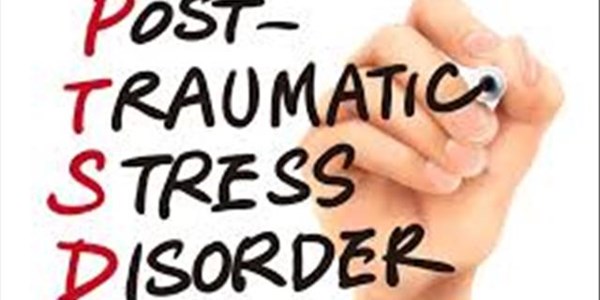General
#PostTraumaticStressDisorder: Journalists speak out─── 14:04 Thu, 13 Jun 2019

The best way to celebrate Post Traumatic Stress Disorder (PTSD) Awareness Month in June is to take the time to understand the experiences and day-to-day realities of those around you who may be suffering from this disorder.
“As a journalist, you’d never think that anything would happen to you as you are always the one writing the stories and speaking about who it is happening to, not realising that you are also placed in dangerous situations and will also have to deal with PTSD at some stage.” Sazly Hartzenberg, journalist at Bloemfontein Courant, shares her experience regarding PTSD after witnessing an accident which took place at Central Media Group’s offices in Bloemfontein on 19 September 2018. More than 20 workers were injured after the driver of a flatbed truck with construction workers on the back lost control of the vehicle, crashing through the fence and overturned. Three deaths were confirmed.
Hartzenberg, at the time an intern journalist, was the first to arrive on the scene and witnessed the traumatic deaths. She continues to explain that even after counselling she still drove cautiously when seeing a truck driving in the same lane as her, or even in the opposite lane.

Sazly Hartzenberg PHOTO: Pierce van Heerden
According to the South African Depression and Anxiety Group (SADAG), “people suffering from PTSD may have episodes where the traumatic event ‘intrudes’ into their current life. This occurs by means of sudden, vivid memories accompanied by painful emotions which take over the victim's attention. This re-experiencing of the trauma is a flashback - a recollection so powerful that the individual may feel as if the trauma is actually being experienced all over again.”
Workers such as paramedics, police officers or journalists might routinely be exposed to violence, trauma or disturbing online videos because of their jobs. News organisations regularly warn journalists about the effects of repeated viewing of violent or disturbing events.

Josca Human PHOTO: Supplied
Josca Human, former newsreader and journalist at OFM News, shares one of her traumatic experiences. The incident took place on October 10, 2017, when violent protestors approached Human and her colleague who were attending violent community protests in Thabong, Welkom. Protesters surrounded the vehicle taking the car keys and demanding their possessions. Although they had managed to escape the “crime” scene, Human describes the after-effects as shocking and a lot of emotion left to deal with.
Human explains that counseling helped her get over her PTSD, and today she is more cautious and aware of the things around her.
According to the South African Depression and Anxiety Group, one important form of therapy for those with PTSD is cognitive behavioural therapy (CBT). This treatment approach focuses on coping with the PTSD sufferer's painful and intrusive patterns of behaviour by teaching him or her relaxation techniques, and examining (and challenging) his or her mental processes. Trauma counselling is another effective way of coping with the experience. The person may go for individual sessions where he or she can talk through the experience and work through painful feelings such as anger, sadness and guilt. Ways of coping with the symptoms can be explored.
If you need a referral to a psychologist, psychiatrist or support group, please call the South African Depression and Anxiety Group (SADAG) on 011 234 4837 or 0800 20 50 26 and speak to a trained counsellor who can assist you further.
OFM News/Sonri Naidoo













